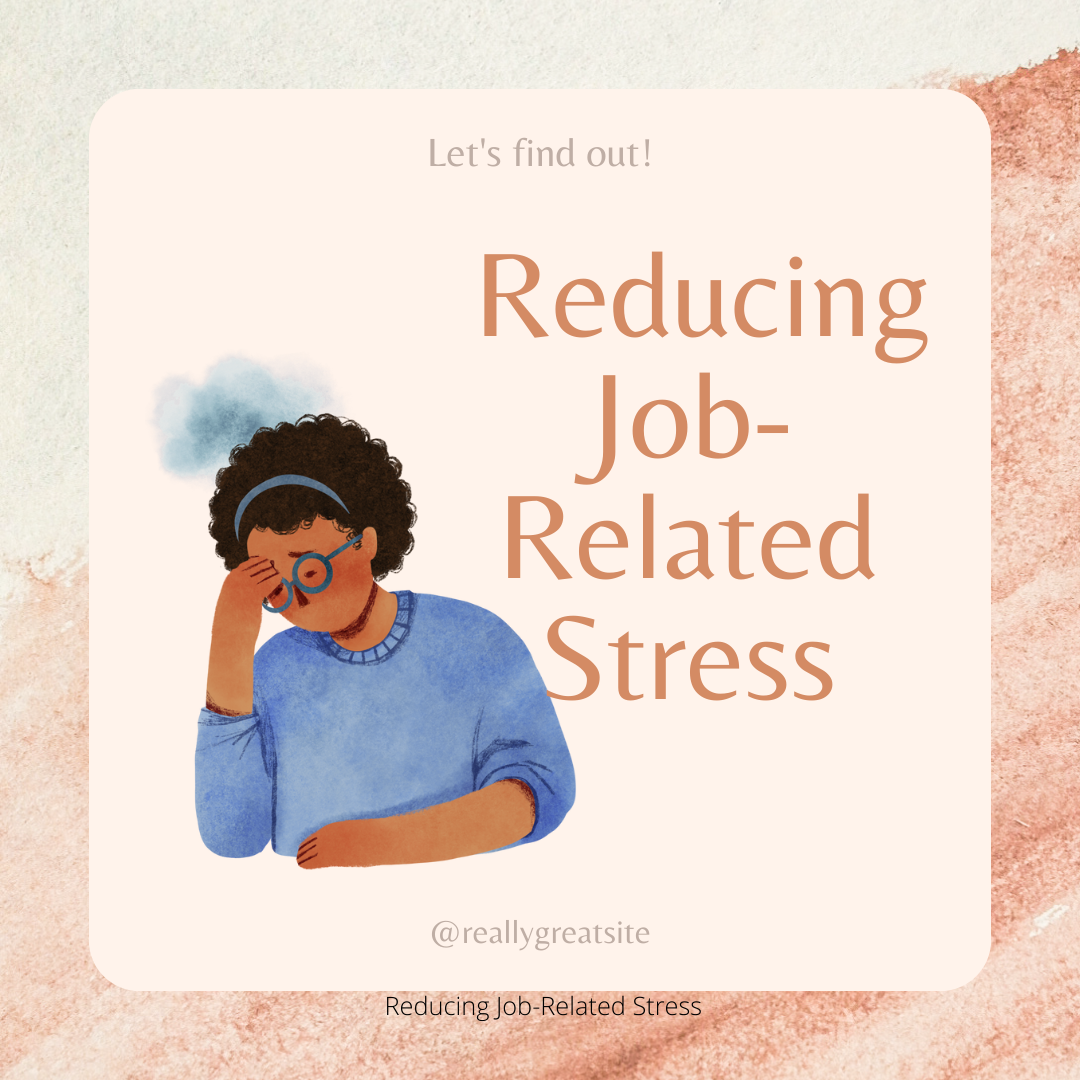
Introduction
In today’s fast-paced and competitive work culture, job-related stress has become a significant concern affecting many individuals. However, by implementing effective strategies, it is possible to reduce stress levels and create a healthier work-life balance. In this blog, we will share ten practical tips that can help you manage job-related stress and find greater peace and fulfilment in your professional life. Let’s dive in and discover how to achieve a harmonious equilibrium between work and well-being.
1. Prioritize Self-Care
Make self-care a non-negotiable part of your routine. Set aside time for activities that replenish your energy, such as exercise, hobbies, meditation, or spending time with loved ones. Self-care will go a long way in reducing workplace stress.
2. Set Boundaries
Establish clear boundaries between work and personal life. Avoid taking work-related calls or emails during your designated non-work hours, allowing yourself time to unwind and recharge.
3. Practice Time Management
Effectively manage your time by prioritizing tasks, breaking them into smaller, manageable steps, and avoiding multitasking. Set realistic deadlines to minimize unnecessary stress.
4. Learn to Delegate
Recognize that you cannot do everything alone. Delegate tasks when appropriate and trust your colleagues or team members to share the workload. Collaboration reduces stress and fosters a supportive work environment. The delegation of duties will help you to reduce workplace stress.
5. Seek Support
Don’t hesitate to reach out for support when needed. Speak to trusted colleagues, friends, or family members about your stressors, and consider seeking professional help, such as counselling or therapy.
6. Practice Mindfulness
Incorporate mindfulness techniques into your daily routine. Take short breaks to focus on your breath, engage in mindful eating, or practice mindfulness meditation. These techniques can help reduce stress and increase focus.
7. Maintain a Healthy Lifestyle
Nurture your physical well-being by adopting healthy habits. Prioritize regular exercise, a balanced diet, and adequate sleep. A healthy body promotes resilience and better stress management.
8. Foster Positive Relationships
Cultivate positive relationships with your colleagues. Establish open lines of communication, support one another, and create a harmonious work environment. Strong social connections buffer against stress.
9. Take Breaks
Allow yourself regular breaks throughout the workday. Step away from your desk, engage in stretching exercises, or go for a short walk. These breaks enhance focus and recharge your energy.
10. Seek Meaning and Purpose
Connect with the intrinsic value of your work. Find meaning and purpose in what you do by aligning your personal values with your professional goals. Cultivate a sense of fulfilment and passion for your work. The positive attitude derived from the meaning will help you in lowering stress levels at work.
Conclusion
Reducing job-related stress and achieving a better work-life balance is within your reach. By implementing these ten practical tips, you can manage stress more effectively, improve well-being, and enhance productivity. Remember to prioritize self-care, set boundaries, seek support, and foster positive relationships. With a mindful approach and proactive strategies, you can navigate the challenges of the work environment while maintaining a healthy work-life equilibrium.
Related Posts
Kenya’s Mining Cadastre: Navigating Resource Legitimacy
Exploring the Functions and Significance of Kenya’s Mining Cadastre Portal In the realm of resource…
Social Assessment: Understanding the Role of Social Norms in Society
Social norms are a crucial part of any society. They inform the way people behave…
Promoting Religious Diversity and Enhancing Employee Satisfaction: A Comprehensive Guide
Promoting religious diversity and allowing employees to express their religion at work while reducing workplace…
10 Effective Tips for Reducing Job-Related Stress and Finding Balance
Introduction In today’s fast-paced and competitive work culture, job-related stress has become a significant concern…




